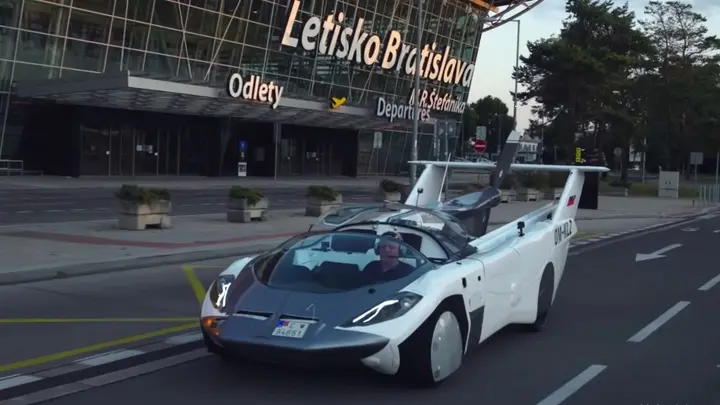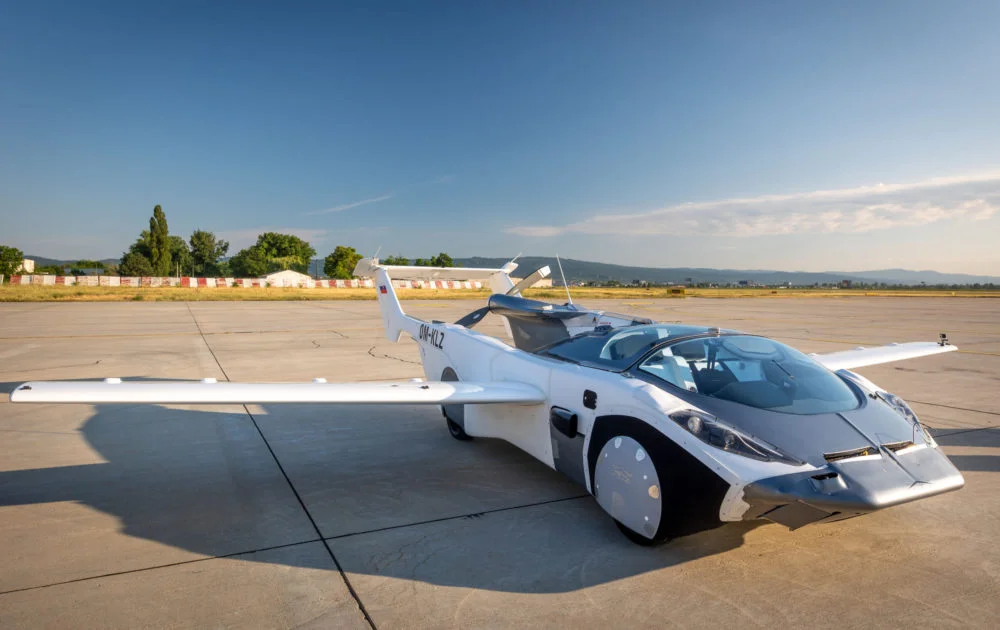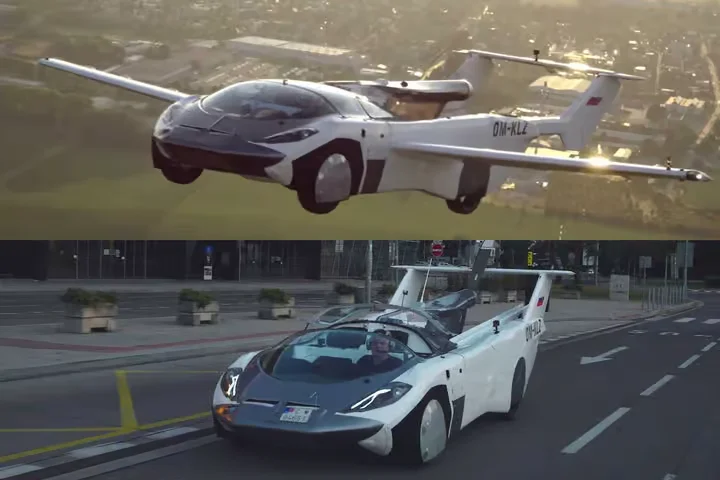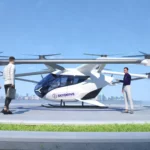Slovakian company KleinVision has recently announced a significant development in the realm of flying car technology. They have closed a deal with a Chinese firm, Hebei Jianxin Flying Car Technology Company Limited, granting them the license to construct AirCar vehicles. While the exact financial terms remain undisclosed, this move is set to reshape the transportation landscape in China.
The AirCar comes with a pusher propeller, switchblade-style retractable wings and a telescoping tail. It’s capable of flying about 600 miles at a height of 8,200 feet and was developed by Professor Stefan Klein and its co-founder, Anton Zajac of Klein Vision.
Also AirCar is unable to take off or land vertically and requires a runway – similar to a plane. AirCar is only capable of carrying two people with a combined weight of 31 stone, or about 430 pounds.
Under the agreement, Hebei Jianxin Flying Car Technology Company Limited has gained exclusive rights within a specific geographical area to produce and distribute certified flying cars, leveraging KleinVision’s advanced technology. This partnership signifies a significant step towards advancing mobility solutions globally, as stated by Stefan Klein, Chairman of the Board at KleinVision, and Anton Zajac, co-founder.

“We are pleased to announce the sale of the license for our certified flying car technology to the esteemed Chinese company,” stated Stefan Klein, Chairman of the Board at KleinVision. “This partnership represents a significant step in our mission to expand global access to revolutionary mobility solutions and drive progress in the industry,” added Anton Zajac, co-founder at KleinVision.
The AirCar, conceived by Professor Stefan Klein, boasts advanced features including a 160 HP BMW engine, fixed propeller, and even a ballistic parachute and normal fuel, the AirCar flew for 35 minutes between two Slovakian airports in 2021, using runways for take-off and landing.
The prototype cost a reported $2.3 million to develop, but it is unclear how much Hebei Jianxin paid for the technology.

China’s interest in flying transportation solutions is evident, with recent developments showcasing the country’s determination to lead in this domain. With successful test flights of passenger-carrying drones and the awarding of safety certificates for electric flying taxis.
According to thenextweb, KleinVision now aims to obtain the European Aviation Safety Agency’s CS-32 certificate, which would remove restrictions on production numbers.
Anton Zajac, the startup’s cofounder, said Aircar is also getting an engine upgrade. The new version will have an aviation engine that doubles the power output.
“This will increase the cruising speed, shorten the takeoff distance and increase the safety of the product,” Zajac told TNW via email. “On top of this, the production model will be made of a single shell (monocoque) which will provide entire structural support.”
According to the BBC, this deal could help China become a top player in flying transportation, just like it did with electric vehicles. Recently, a company called Autoflight tested a drone that carries passengers from Shenzhen to Zhuhai.

Despite the excitement surrounding flying cars, challenges such as infrastructure, regulation, and public acceptance persist. However, experts believe these hurdles are temporary, and flying cars could become a transformative mode of transportation. “China could see this as an opportunity to get ahead,” he added. Similar concerns were raised about adopting electric cars, which China has now become a global leader in.
He told the BBC that this new way of getting around is a big deal because it helps level the playing field for everyone. When on the ground, the vehicle looks like a modern sports car, with the wings folded smoothly down the side – it takes two minutes and 15 seconds to turn into an aircraft from sports car mode, Reuters reports.
KleinVision’s sale of the AirCar license to Hebei Jianxin marks a crucial milestone in the journey towards commercializing flying cars. With ongoing developments, including upgrades to the vehicle’s engine and structural enhancements, KleinVision aims to revolutionize transportation further.
“This licensing agreement grants the Chinese company exclusive rights to manufacture and distribute certified flying cars utilizing KleinVision’s cutting-edge technology within a specific geographical region. The Jianxin Group is poised to leverage this groundbreaking technology to redefine transportation standards in China.”








